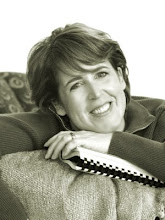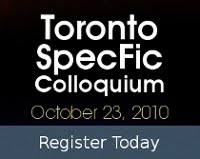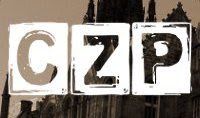I resisted. Oh yes, I resisted. I didn't want to pay for a device just so I could do something that I already do. It just didn't make sense. Then, gradually, I started discovering how lazy I truly am. You mean, I have to go out of the house, and go to a store, where they may, or may not, have that one copy of Knitting with Dog Hair book?
It started simply enough: I had the Kindle app on my computer because I didn't want to wait for Amazon to ship me said Knitting with Dog Hair, so I ordered it instantly and had it delivered to my computer. For a decent price without paying for that pesky shipping fee. Interesting. But I couldn’t take my laptop to bed with me, could I? (Okay, full disclosure – I tried.) Then I got an iPhone. Wow, I can have all my books with me all the time! I can read in the bank line. I can read when waiting at a red light (joking . . . I do this at all coloured lights, not just red). I can read while you’re trying to talk to me. “Yup, uh huh, yeah, interesting, yeah, genocide, yup, frogs . . . wonderful.”
But, that iPhone was frying my eyeballs. When I was traveling recently, the glare on the screen (I mention traveling because it’s more difficult to control the environment), combined with the refresh rate (the amount of times, in a second, that the screen refreshes) made for a killer headache.
Then the e-book manufacturers started having a little price war and brought the price of their readers to a decent level. What timing! So I bought a Kindle from Amazon. The Kindle has several cool features: it's e-ink (no refresh rate . . . so you're actually seeing a static image), search capabilities (can't remember where that character first appeared: use this), built-in dictionary (just move the cursor and it'll give you a definition at the bottom of the screen), it's wireless (so you can download and sync books anywhere), the battery lasts a week (not quite accurate), and adjustable font size.
If I had my way, I'd never buy a physical book again. I know, I know, you like the smell of a book. You know what? That's mold. Or chemicals, or bleach. It’s not good for you. I joke, actually, because I’m not a good one to argue about the tactile experience of books -- because I trash them, give them away, or junk them. I have a good friend who has stacks of books with perfect spines -- as if they've never been read at all. He delicately peers between the covers, turning the pages like this is a medieval manuscript. My books are tattered, dog-eared, sauce-stained, and bloated from where they were dropped in water. In other words -- I've never worshiped at the temple of the physical book. It's just the delivery vehicle (and yes, with an expensive e-reader, I now have to treat it with respect).
Then there's the cost of books. Simply put -- I don't care about the cost of physical books anymore. I like that e-books are all $10. I don't care whether it's available as a paperback or a hardcover and that it may or may not be more expensive. I am purchasing a different product and I’m simply not concerned about it. Like comparing a DVD, to a BluRay, to going to the theatre. Each price doesn’t affect how I view the other forms. $10? I don't even think about $10. It's an easy price. It's a good price. It's disposable. And I don’t even have to leave my house to buy it. Will $6, or $5, or $9.50 cause me to buy more? No. I think the price has been set. $10. Done.
Now, there are down sides. I can’t lend books (I believe the Nook, you can). Sure, no one makes money for lent books, but I don't know how many writers I've hooked my family and friends with because they read the first one that I lent them. As an aside, Rob Sawyer made a good comment this past weekend: for $10, you don’t need to lend it. Give it to them.
Is the e-book going to create business? I don’t believe so. But publishers will lose business if they don’t support it. How am I so sure? Because I’ve already skipped buying books because they don’t have them in e-format – and I’m not going to mention any names.
Small publishers should be front and centre in jumping on the bandwagon. Generally speaking, it’s more difficult to get books from small presses – that whole pesky distribution thing. Make it readily available so I don’t have to pay shipping for your books. Don’t make me work to get a book from you (remember, I’m lazy).
The book is an interesting format. While I’m hardly an expert at the history of the book (and I’m sure our friendly moderator Helen Marshall, who is an expert in this field, will slap me down ruthlessly if I’m wrong) but the book has not changed in centuries. Compare that to music (people still claim that vinyl is better) and moving pictures (I’m still dead set against 3D). Now, for the first time in centuries, along comes a change in the book format. It’s worked for so long; why change now? Because it’s better, that’s why.
This is a big issue. I haven’t even touched on the role of publishers in all of this. And marketing. And even bookstores. I’ll let someone else tackle that issue on a different day.
E-books are not going away. Are they going to replace physical books? Too early to say. But don’t panic, fair book lover! I’m sure there’ll always be a place for your leather-bound novel on the shelf. And while you’re getting ready to settle for a night of pleasant reading with your physical book, don’t forget to spin up that phonograph so you can listen to all the hits of the 1920s. Ah, the good ole days.
***
Ryan McFadden is an Aurora-award winning fantasy/SF author in London, Ontario. His novella "Deus Ex Machina" was one of the four Aurora-winning stories of Women of the Apocalypse. The Apocalyptic Four are planning our next project, The Puzzle Box is under consideration by Edge Science Fiction and Fantasy. Other writing credits include stories in Alienskin, Chicago Overcoat, Afterburn SF, Sinister Tales, as well as a finalist in the $1500 JFJK contest.Women of the Apocalypse by Eileen Bell, Roxanne Felix, Billie Milholland, and Ryan McFadden
Four women. Four shooters. Four destinies to save the world…
The Four Horsemen of the Apocalypse are coming. And four Archangels find the perfect champions to save the world: fighters, warriors, soldiers, and brave men, all ready to fight for humanity against end times. All they have to do is drink a shooter — a caustic mix of alcohol and divinity that will imbue them with the conviction to battle the Four.









